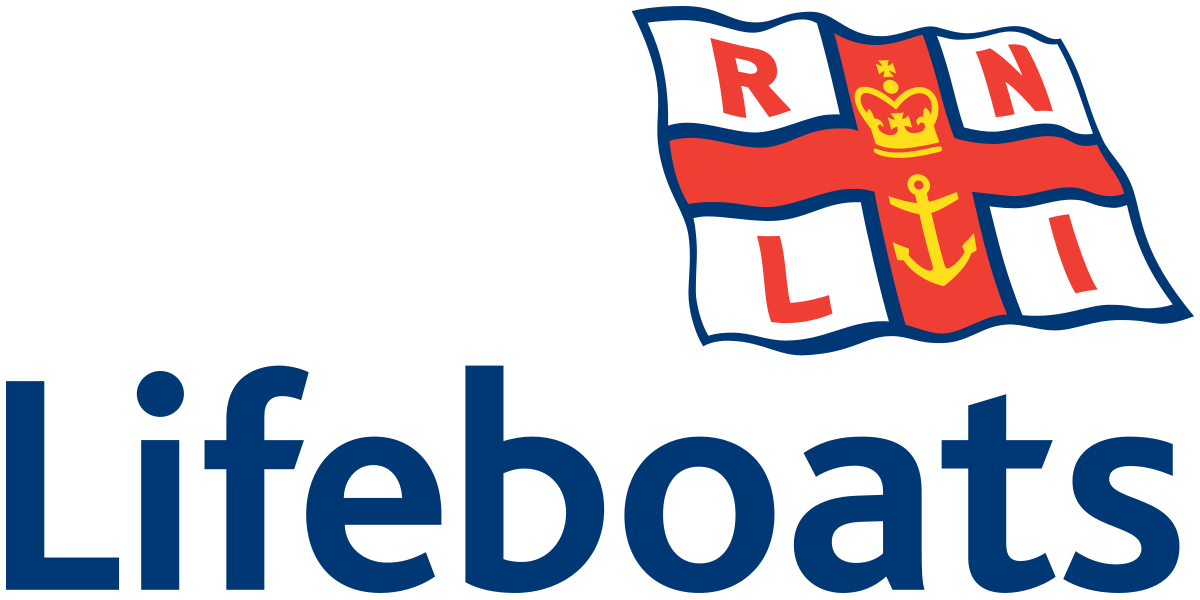
The RNLI is warning people who live by the Welsh coast and can walk to beaches for exercise during the fire break not to take unnecessary risks.
The charity is urging people not to put undue pressure on volunteer lifeboat crews and other front-line services.
As schools across Wales prepare for the half term break, the RNLI is reminding people to follow government advice, but if they are able to visit the coast, they should exercise caution.
Following the announcement by the Welsh First Minister Mark Drakeford on Monday, from tomorrow (23 October) volunteer RNLI crews will no longer exercise but will still answer emergency calls to anyone in danger. The charity is asking the people of Wales to play their part and take responsibility for themselves and their families to avoid any unnecessary risk to them and to our lifeboat crews.
Chris Cousens, RNLI Water Safety Lead says;
‘Those lucky enough to have a beach or coastal path within walking distance from their home, might want to use this space to exercise with consideration of the Government’s guidance.
‘However, we’d ask that you consider carefully whether you need to visit the beach, the coast or go into the water in case you get into difficulty. Please avoid taking unnecessary risks which would put pressure on our volunteer lifeboat crews and other front line services and puts them at risk of being exposed to Coronavirus.
‘Please ensure you check tide times and your route before you leave and be aware of your surroundings while out.’
RNLI volunteer lifeboat crews from Flint to Penarth have been rescuing people throughout the pandemic. It has also been a busy summer for RNLI lifeguards who have continued to operate in a challenging environment.
Matt Crofts, Lifesaving Manager for Wales says:
‘I would like to extend my sincere thanks to all our volunteers across all our teams for their exceptional efforts in these truly unprecedented times. I would like to give special thanks to our lifeguards who over the summer months did an exceptional job in patrolling our beaches and carrying out rescues in difficult circumstances.
‘Whilst RNLI lifeboat crews and HM Coastguard are still on call ready to respond to emergencies, we need the public to be aware of risk and dangers, take responsibility for themselves and their loved ones and remember that, in an emergency, call 999 or 112 and ask for the Coastguard.
Whilst the charity’s commitment to saving lives has not stopped, the RNLI’s ability to fundraise has been limited. During the fire break, fundraising and water safety activity is to be restricted further to online or virtual events only.
The RNLI might not be able to fundraise on our streets or through our shops, but the people of Wales can still support Welsh lifeboat crews online: https://www.justgiving.com/campaign/RNLIWales2020
Key facts about the RNLI
The RNLI charity saves lives at sea. Its volunteers provide a 24-hour search and rescue service around the United Kingdom and Republic of Ireland coasts. The RNLI operates over 238 lifeboat stations in the UK and Ireland and more than 240 lifeguard units on beaches around the UK and Channel Islands. The RNLI is independent of Coastguard and government and depends on voluntary donations.

 Housing and Support Fayre Helps Chester North & Neston Residents Access Vital Services
Housing and Support Fayre Helps Chester North & Neston Residents Access Vital Services
 Successful local hospital liver cancer screening service continues to expand
Successful local hospital liver cancer screening service continues to expand
 POPULAR CHESTER BAR CELEBRATES 25th ANNIVERSARY WITH SPECIAL LEGO MODEL
POPULAR CHESTER BAR CELEBRATES 25th ANNIVERSARY WITH SPECIAL LEGO MODEL
 Cheshire Digital Agency Fly High Media Shortlisted for European Search Award
Cheshire Digital Agency Fly High Media Shortlisted for European Search Award
 Blues Match Report: Hereford 2 - 2 Chester FC
Blues Match Report: Hereford 2 - 2 Chester FC
 Blues Match Preview: Hereford v Chester FC
Blues Match Preview: Hereford v Chester FC
 Ten arrested for drugs offences following warrants in Chester
Ten arrested for drugs offences following warrants in Chester
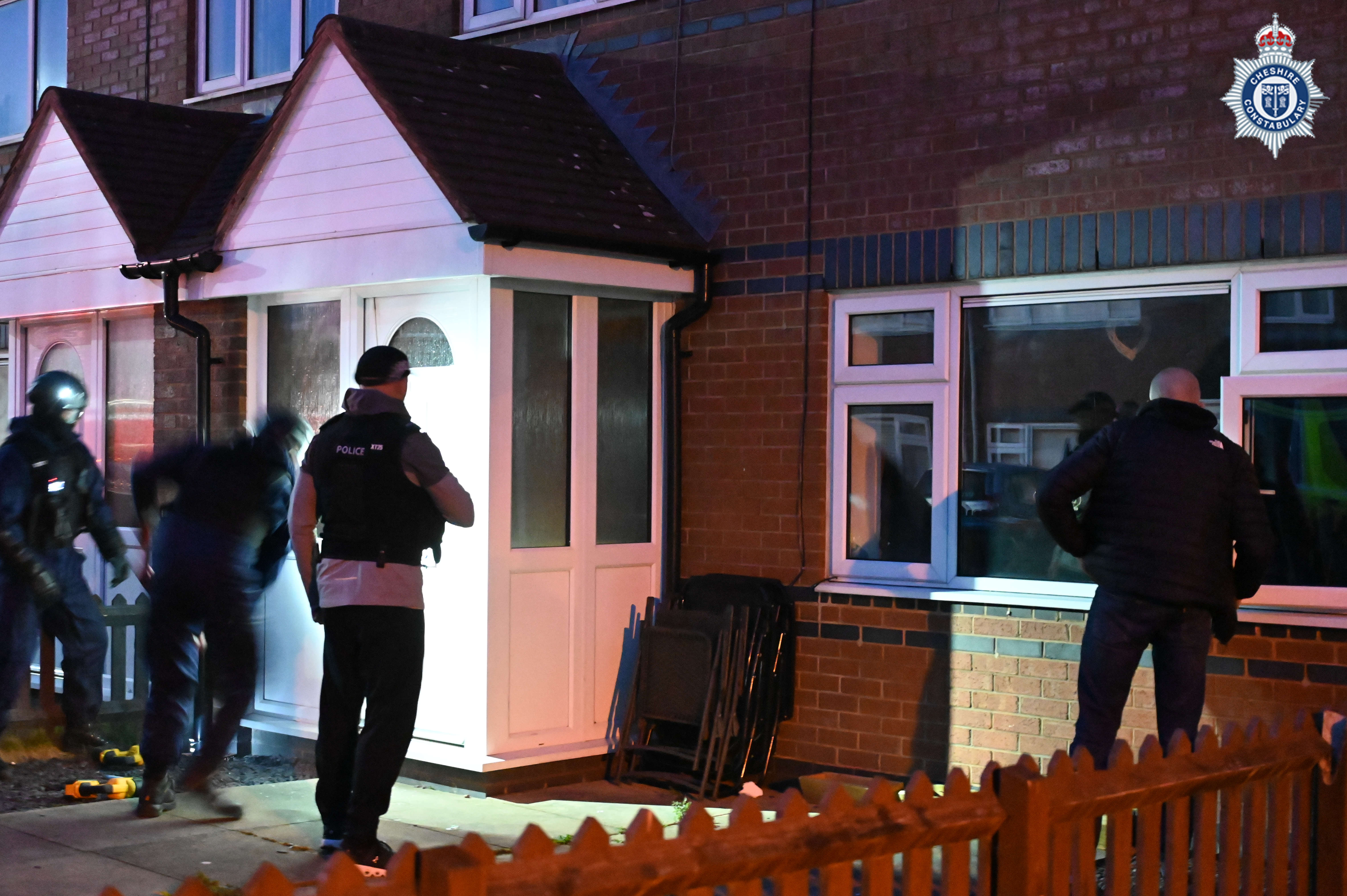 Ten arrested for drugs offences following warrants in Chester
Ten arrested for drugs offences following warrants in Chester
 Suspended prison sentence and indefinite ban for Cheshire man who abused his dog
Suspended prison sentence and indefinite ban for Cheshire man who abused his dog
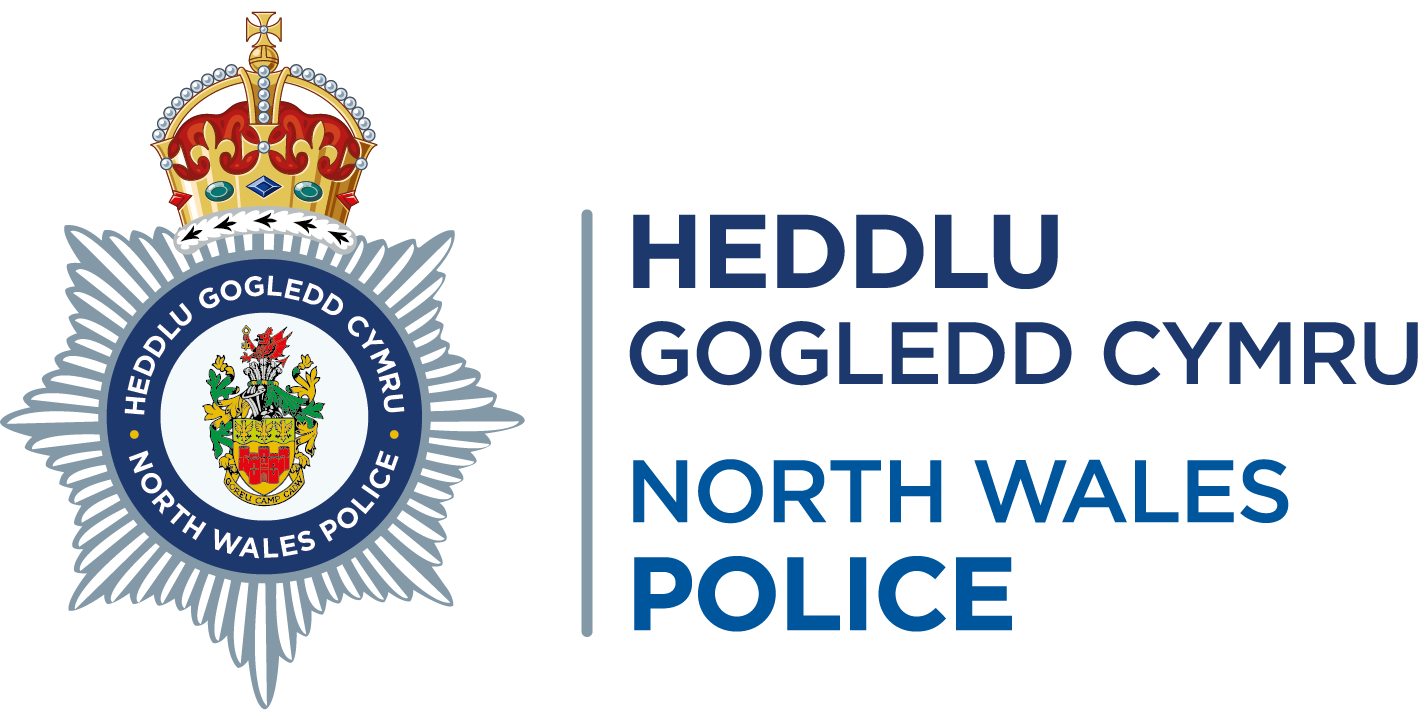 Recovered Stolen Items
Recovered Stolen Items
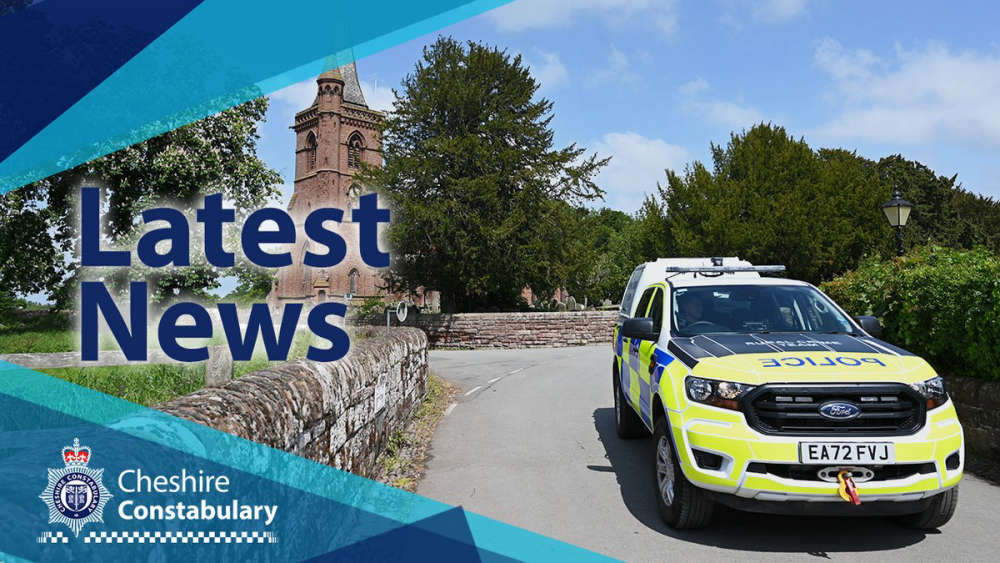 Man charged in relation to courier fraud
Man charged in relation to courier fraud
 Police to target criminal use of Cheshire’s roads
Police to target criminal use of Cheshire’s roads
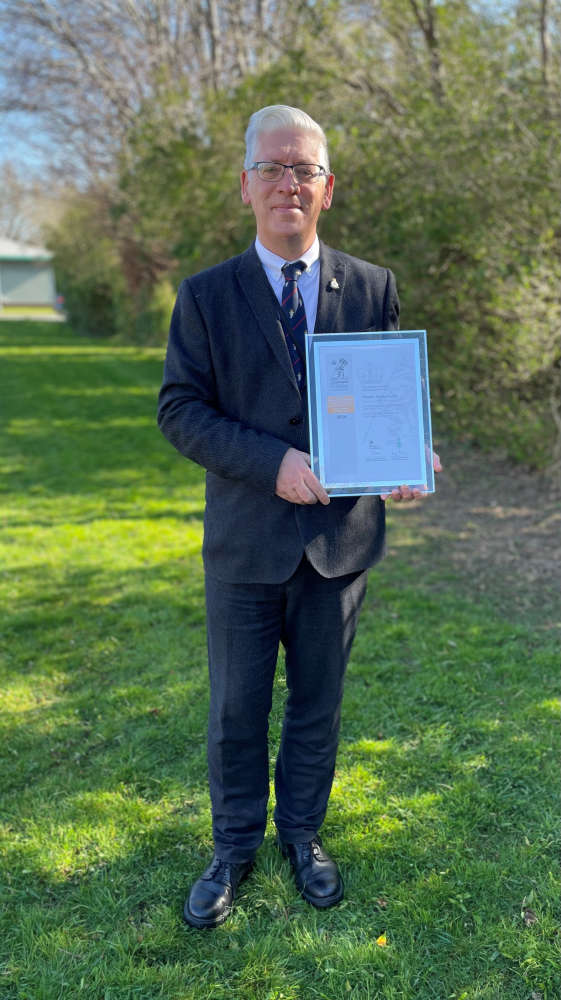 Council awarded Gold Armed Forces Award
Council awarded Gold Armed Forces Award
 Appeal for footage and witnesses following collision in Delamere
Appeal for footage and witnesses following collision in Delamere
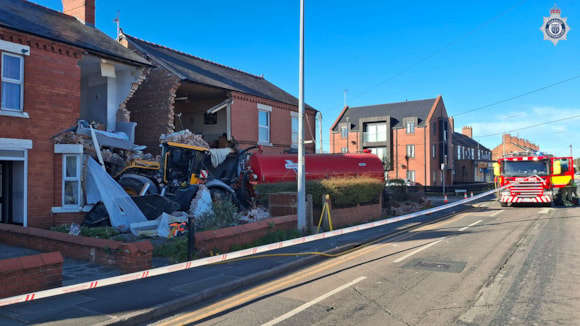 Appeal for information following serious collision in Chester
Appeal for information following serious collision in Chester
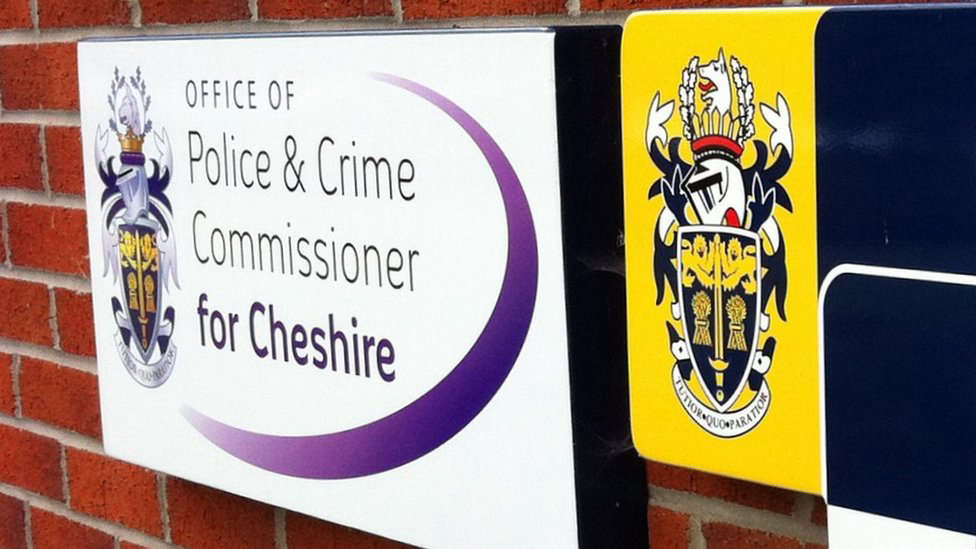 Your chance to get involved in police scrutiny meetings
Your chance to get involved in police scrutiny meetings
 New Events at Jodrell Bank
New Events at Jodrell Bank
 Inspiring Futures at The Queen’s School
Inspiring Futures at The Queen’s School
 Bowmere Hospital celebrates 20 years of mental health care
Bowmere Hospital celebrates 20 years of mental health care